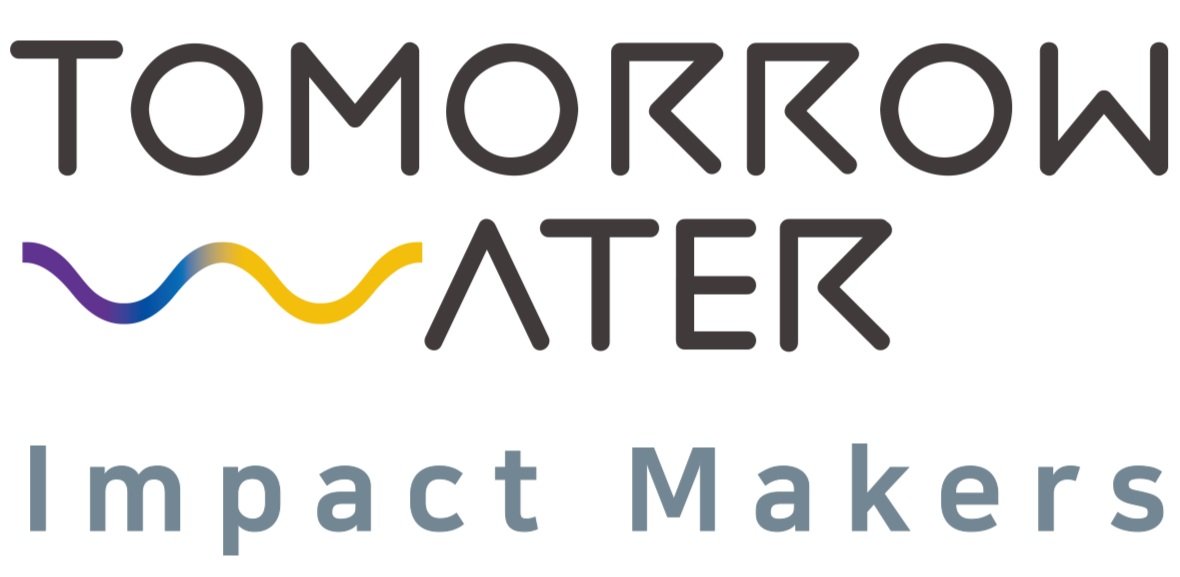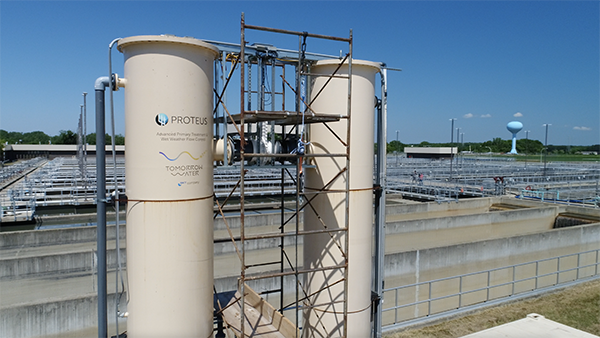Independent Expert Report Confirms Proteus Filtration Demonstration Results at Michigan Wastewater Treatment Plant
Anaheim, CA – June 2021 – Following Tomorrow Water’s successful demonstration of its Proteus technology at the Anthony Ragnone Treatment Plant (ARTP) in Michigan, an independent validation report has been released by Dr. Glen Daigger, President of One Water Solutions and Professor of Engineering Practice at the University of Michigan. Dr. Daigger served as the independent reviewer of the 13-month pilot, which provided valuable data in real-world conditions supporting Proteus and Proteus Plus technologies as promising solutions for increasingly common peak flow events at water resource recovery facilities (WRRFs).
ONE WATER SOLUTIONS EXPERT REPORT
The pilot demonstrated Proteus’ ability to filter solids from incoming wastewater, effectively replacing primary settling tanks and demonstrating the potential of its new expanded polypropylene (EPP) media. Proteus Plus, an aerated upgrade to the Proteus system, further improved removal rates to 84% for TSS and 81% for BOD, thus abiding by a common (secondary) permit limit during real storm events. Additionally, the pilot achieved consistent removal efficiency over the entire range of mass loading rates. Taken together, these results indicate Proteus’ applicability to properly handle both wet weather flows and advanced primary treatment.
Key findings from the newly released expert report include the assertion that “[…] Proteus Plus clearly qualifies as a ‘biological’ treatment technology.” Considering that ARTP may be required by state regulators to provide biological treatment for all flows, this report supports Proteus Plus as a new technology option for plants contending with similar permit challenges. The report also confirms that first flush impacts were observed during the pilot, confirming Proteus’ ability to manage unique wet weather challenges.
Joseph Goergen, Plant Superintendent of ARTP, spoke about the pilot’s success. “The results I’ve seen so far look very promising. We need a means of dealing with these excess flows that come in with high intensity, short duration, and very infrequently. I think that this technology has good potential for that.”
The pilot at ARTP marks the first installation of the Proteus technology in the United States. In other parts of the world, the Proteus up-flow media filter has been utilized to replace primary clarifiers, reduce the physical footprint of plants, and treat high flow-rates.
“These are very interesting technologies,” said Dr. Glen Daigger. “Certainly, the piloting has examined their use for wet weather treatment, but they clearly have potential for a range of other applications.”


